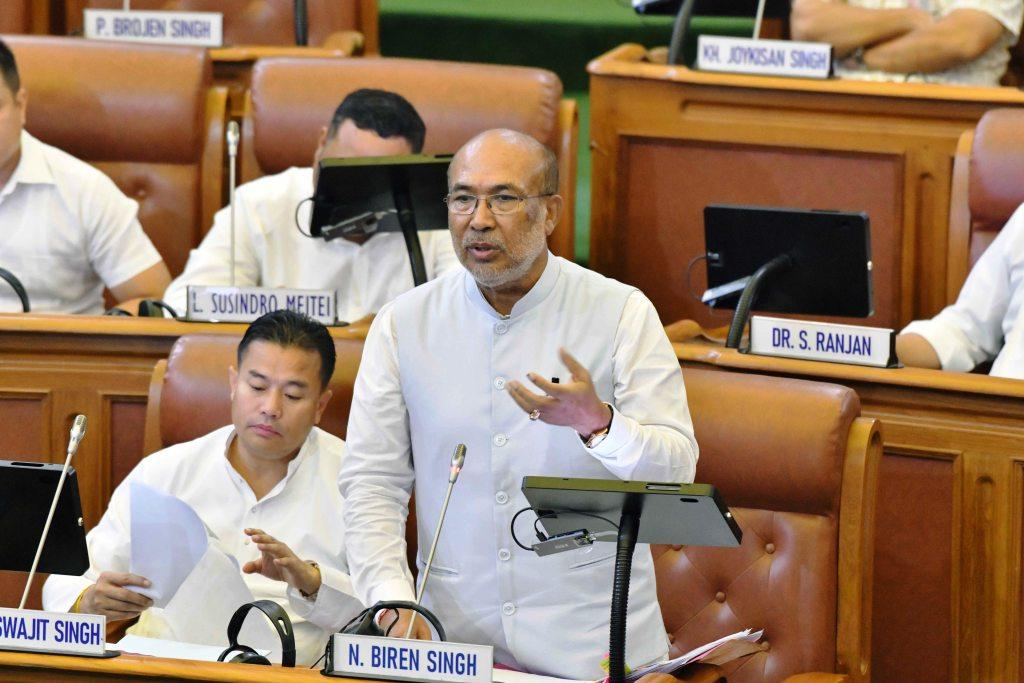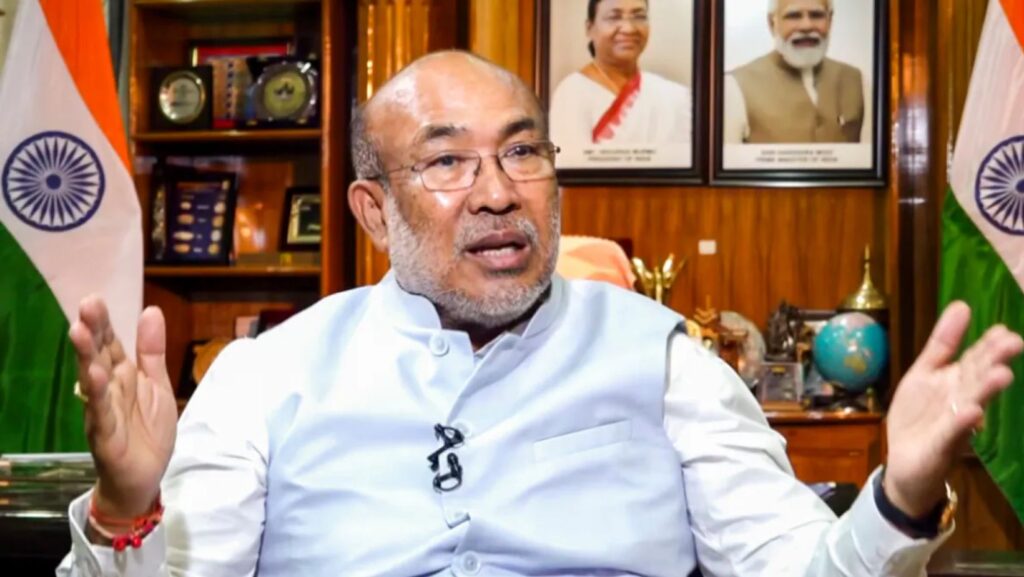
The political atmosphere in Manipur has taken a decisive turn as Members of the Legislative Assembly (MLAs) have rallied together to urge Governor Ajay Bhalla to expedite the formation of a “popular” government in the state. The plea comes amidst mounting pressure from various political factions and civil society groups, as the state grapples with governance challenges and developmental delays.
Manipur, a northeastern state often described as the jewel of India, has been under the spotlight due to its complex political equations and fragile governance structures. With the current impasse threatening to derail the progress of the state, the recent move by the MLAs underscores the urgency of establishing a stable government that can address the myriad issues facing Manipur.
Political Turmoil and Its Consequences
The absence of a fully functional government has had a ripple effect on various aspects of life in Manipur. From delays in administrative decisions to stalled development projects, the lack of political stability is deeply felt across the state. The MLAs, representing diverse constituencies, have voiced their concerns about the vacuum in leadership. This situation, they argue, has not only hindered governance but has also exacerbated the socio-economic challenges in the region.
Sources close to the political corridors suggest that the delay in government formation stems from inter-party disagreements and a lack of consensus on key issues. While this is not uncommon in coalition politics, the prolonged stalemate has fueled unrest among the populace. For a state like Manipur, which already contends with insurgency and ethnic tensions, political stability is not just a necessity—it is imperative.
Adding to the complexity is the dissatisfaction among the youth and emerging leaders who see the current stalemate as a reflection of systemic issues in Indian politics. The lack of opportunities, coupled with rising unemployment, has created a volatile mix of discontent and frustration. This makes the formation of a government not just a political priority but also a societal need.
The Role of Governor Ajay Bhalla
As the constitutional head of the state, Governor Ajay Bhalla finds himself at the center of this political crisis. His role, according to constitutional mandates, involves facilitating the formation of a government that commands the majority in the Legislative Assembly. However, given the intricate political dynamics in Manipur, this task is far from straightforward.
The MLAs’ appeal to the Governor highlights their collective desire for a leadership that resonates with the aspirations of the people. In their memorandum, they have emphasized the need for a “popular” government—a term that signifies leadership with widespread public support and the ability to navigate the state’s complex challenges effectively.
Observers believe that the Governor’s decision in the coming days will be pivotal. Whether he opts for fresh elections, seeks to mediate between warring factions, or invites a party/alliance to form the government will have long-lasting implications for Manipur’s political landscape.
It is also worth noting that the Governor’s actions will set a precedent for handling similar crises in other states. The importance of upholding constitutional principles while addressing the unique challenges of a state like Manipur cannot be overstated. Analysts suggest that the Governor must act decisively but with caution, ensuring that his decisions align with the larger interests of the state and its people.
Socio-Economic Implications
Manipur’s socio-economic fabric is intricately tied to its political climate. The ongoing political deadlock has stalled several initiatives aimed at improving infrastructure, healthcare, education, and employment. For instance, major road projects under the Bharat Mala initiative have seen delays due to a lack of administrative approvals. Similarly, programs aimed at boosting tourism—a sector with immense potential in Manipur—have been put on the back burner.
Furthermore, the uncertainty in governance has discouraged private investments, which are crucial for the state’s economic growth. Entrepreneurs and business leaders are hesitant to commit resources in an environment marred by unpredictability. This has had a cascading effect on job creation, with many young professionals choosing to migrate to other states for better opportunities.
The agricultural sector, which forms the backbone of Manipur’s economy, has also felt the impact of political instability. Farmers have reported delays in the disbursement of subsidies and support for modern farming techniques. This has not only affected productivity but has also deepened the rural-urban divide.
Cultural and Ethnic Dimensions
Manipur is home to a mosaic of ethnic communities, each with its unique traditions and aspirations. Political instability often exacerbates tensions among these groups, leading to social unrest. The absence of a cohesive government has made it challenging to address grievances and foster a sense of inclusivity.
In recent months, civil society organizations and community leaders have repeatedly called for a government that prioritizes harmony and equitable development. These voices reflect the broader sentiment among the people—a yearning for leadership that transcends political divisions and focuses on the collective good.
The role of local leaders in bridging gaps between ethnic communities cannot be overlooked. Grassroots movements have emerged as powerful platforms for dialogue and conflict resolution. However, without the backing of a stable government, these efforts often face limitations in scope and impact. A “popular” government that commands widespread respect can play a transformative role in strengthening the social fabric of Manipur.
The Media’s Role in Highlighting Issues
The media, both local and national, has been instrumental in bringing the political crisis in Manipur to the forefront. By shedding light on the challenges faced by the state, journalists have played a crucial role in shaping public opinion and holding leaders accountable. However, the media’s role goes beyond mere reporting—it acts as a bridge between the government and the people, amplifying the voices of the marginalized.
Several editorials and opinion pieces have called for urgent action to resolve the impasse. These narratives emphasize the need for a government that is not only popular but also capable of delivering on its promises. The media has also highlighted success stories from other regions, offering valuable lessons that Manipur can adapt to its unique context.
A Way Forward
The path to resolving Manipur’s political crisis lies in building consensus and prioritizing the welfare of the people over party politics. Analysts suggest that the following steps could pave the way for a stable government:
- Dialogues and Negotiations: Political parties must engage in meaningful discussions to resolve differences and identify common goals.
- Focus on Development: Leaders should prioritize developmental issues that resonate with the electorate, thereby building trust and support.
- Strengthening Institutions: Efforts should be made to enhance the efficiency and transparency of governance institutions to prevent future crises.
Additionally, a renewed focus on youth engagement could prove to be a game-changer. By involving young leaders and professionals in governance, Manipur can tap into fresh perspectives and innovative solutions. Educational institutions, too, can play a role by fostering a culture of civic responsibility and leadership among students.
Conclusion
As Manipur stands at a crossroads, the urgency of forming a “popular” government cannot be overstated. The onus lies on the political leadership to rise above factional interests and work towards a brighter future for the state. With the Governor playing a crucial role in this process, all eyes are on the Raj Bhavan, waiting for a decision that could reshape Manipur’s political and socio-economic landscape.
The road ahead is fraught with challenges, but with collective will and decisive action, Manipur can emerge stronger from this crisis. The people of the state deserve nothing less than a government that embodies their aspirations and paves the way for sustainable progress.
History has shown that adversity often leads to transformation. For Manipur, this political impasse could serve as a turning point, ushering in an era of resilience and growth. The journey will not be easy, but with the right leadership and a unified vision, Manipur has the potential to set an example for other states grappling with similar challenges.

